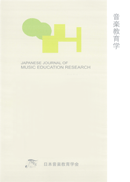Volume 45, Issue 1
Displaying 1-15 of 15 articles from this issue
- |<
- <
- 1
- >
- >|
-
2015Volume 45Issue 1 Pages 1-12
Published: 2015
Released on J-STAGE: March 31, 2017
Download PDF (756K) -
2015Volume 45Issue 1 Pages 13-24
Published: 2015
Released on J-STAGE: March 31, 2017
Download PDF (682K)
-
2015Volume 45Issue 1 Pages 25-35
Published: 2015
Released on J-STAGE: March 31, 2017
Download PDF (624K)
-
2015Volume 45Issue 1 Pages 36
Published: 2015
Released on J-STAGE: March 31, 2017
Download PDF (64K) -
2015Volume 45Issue 1 Pages 37-39
Published: 2015
Released on J-STAGE: March 31, 2017
Download PDF (149K) -
2015Volume 45Issue 1 Pages 40-43
Published: 2015
Released on J-STAGE: March 31, 2017
Download PDF (248K) -
2015Volume 45Issue 1 Pages 44-47
Published: 2015
Released on J-STAGE: March 31, 2017
Download PDF (205K) -
2015Volume 45Issue 1 Pages 48-52
Published: 2015
Released on J-STAGE: March 31, 2017
Download PDF (251K) -
2015Volume 45Issue 1 Pages 53-56
Published: 2015
Released on J-STAGE: March 31, 2017
Download PDF (231K) -
2015Volume 45Issue 1 Pages 57-60
Published: 2015
Released on J-STAGE: March 31, 2017
Download PDF (242K) -
2015Volume 45Issue 1 Pages 61-63
Published: 2015
Released on J-STAGE: March 31, 2017
Download PDF (187K) -
2015Volume 45Issue 1 Pages 64-68
Published: 2015
Released on J-STAGE: March 31, 2017
Download PDF (307K) -
2015Volume 45Issue 1 Pages 69-72
Published: 2015
Released on J-STAGE: March 31, 2017
Download PDF (228K) -
2015Volume 45Issue 1 Pages 73-82
Published: 2015
Released on J-STAGE: March 31, 2017
Download PDF (605K)
-
2015Volume 45Issue 1 Pages 83-84
Published: 2015
Released on J-STAGE: March 31, 2017
Download PDF (118K)
- |<
- <
- 1
- >
- >|
